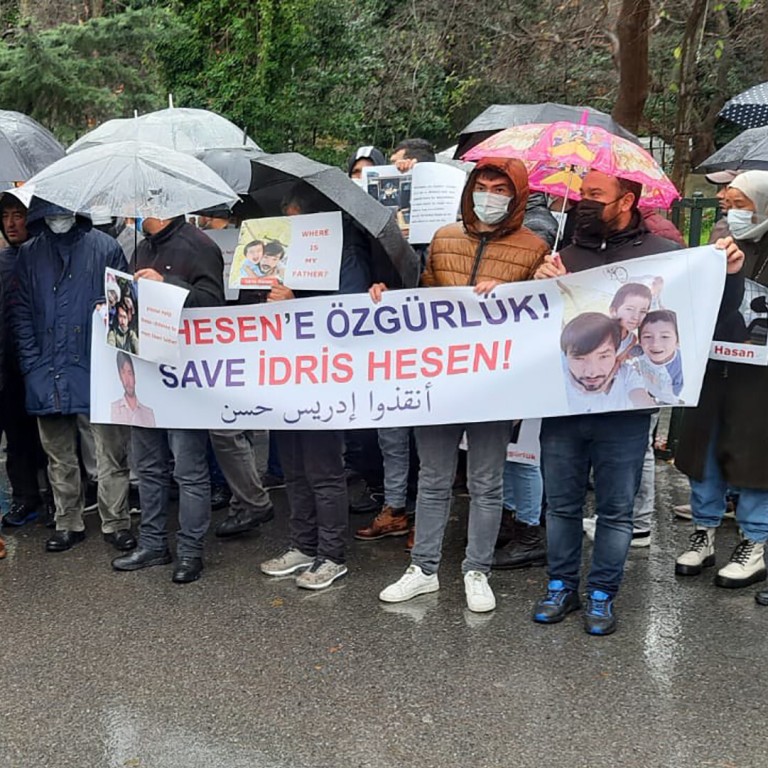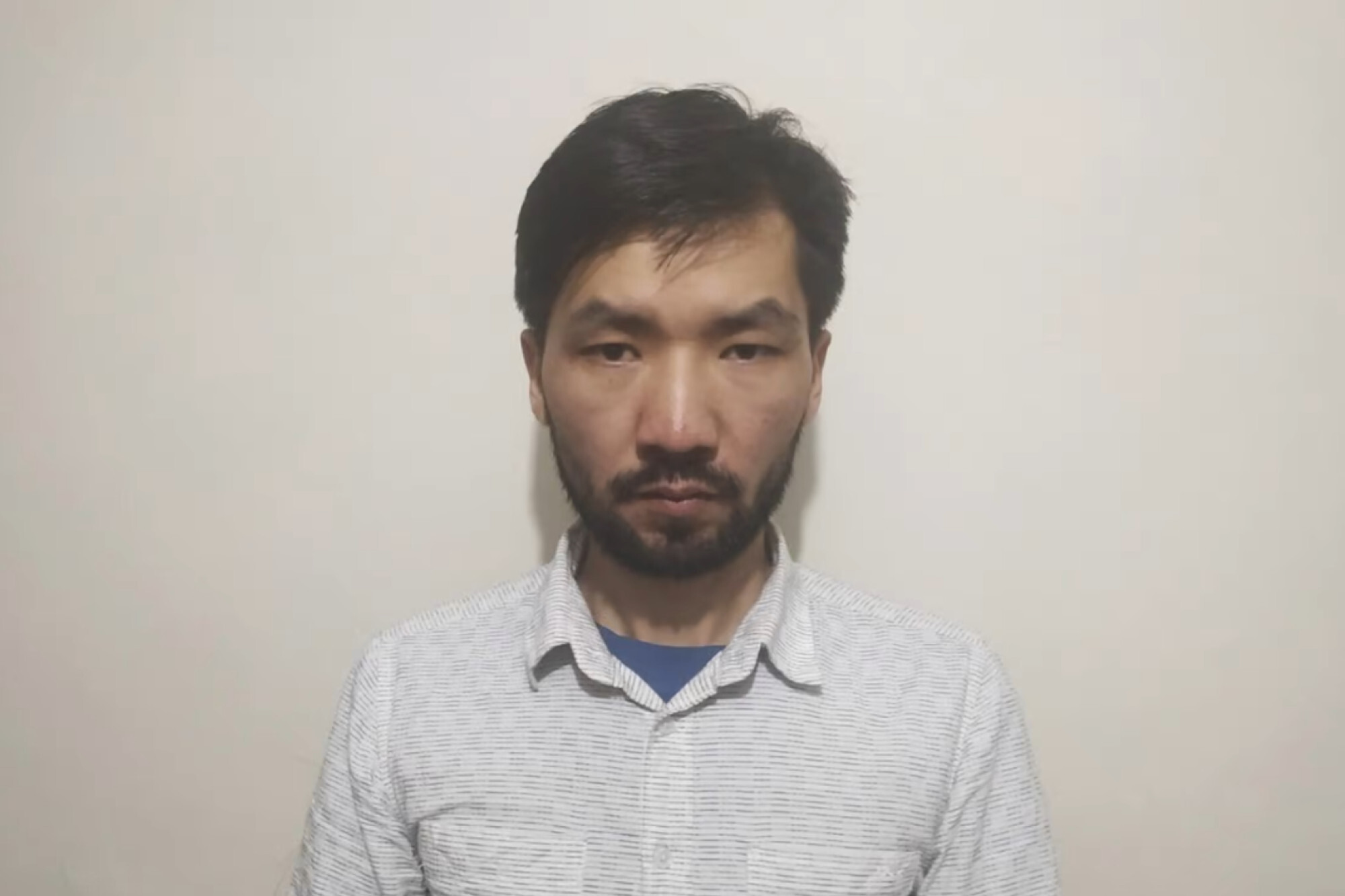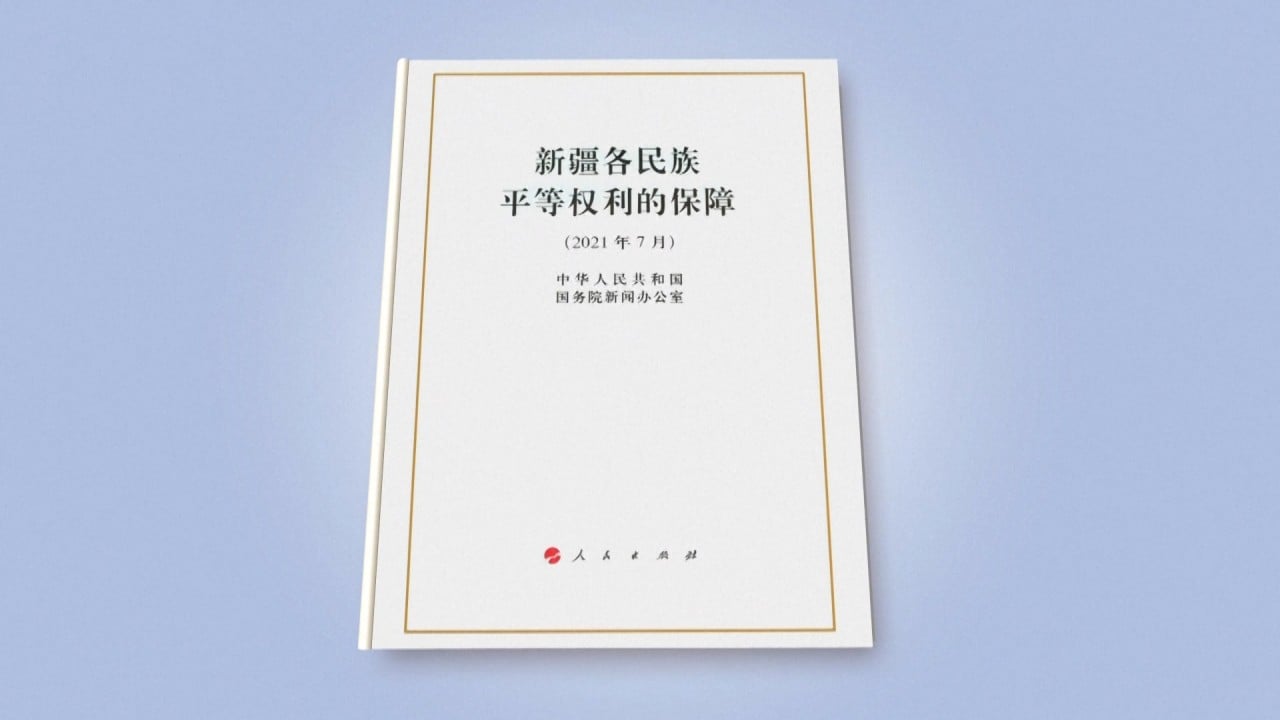
Yidiresi Aishan: rights group appeals to UN over Moroccan court’s extradition ruling against Uygur dissident
- Safeguard Defenders says sending activist back to China would be in blatant disregard of safeguards against risk of torture
- Wife Buzainuer Wubuli says she will continue to fight extradition
Beijing has accused him of being linked to extremist groups, a charge that his wife Buzainuer Wubuli has repeatedly denied.
Safeguard Defenders, which has been helping Aishan with his legal defence, along with the Middle East and North Africa (MENA) Rights Group have filed an urgent appeal to the UN Committee Against Torture, requesting interim measures to suspend the extradition process.
“Idris Hasan’s extradition to China would be in blatant disregard of the principle of non-refoulement to which Morocco is legally bound,” Safeguard Defenders campaign director Laura Harth said.
Members of the group Inter-Parliamentary Alliance on China have also written to the Moroccan ambassadors in at least four countries including the United States and Britain, as well as the European Union, calling again on the Moroccan government to stop the extradition of Aishan to China.
UN Human Rights Council experts and NGOs have called on the Moroccan authorities to uphold the non-refoulement principle, which guarantees that no one should be returned to a country where they would face torture, cruel, and inhuman treatment or punishment.
Morocco’s Ministry of Justice and its permanent mission to the UN did not respond to emailed requests for comment.
What is going on in Xinjiang and who are the Uygur people?
Aishan, 33, has lived in Turkey with his wife and three children since 2012. He had been detained four times in Turkey due to requests from Beijing, and tried to travel via Morocco to Europe to find safer refuge, but was intercepted at Casablanca airport, according to Wubuli.

He worked with friends such as Norway-based exiled writer Abduweli Ayup to document experiences of Uygurs persecuted in Xinjiang, and published resources for resettlement in Turkey for migrants.
Wubuli said she would continue to search for legal avenues to fight the extradition. She also criticised Morocco, a Muslim country, for agreeing to send a fellow Muslim to an unknown fate.
“My husband is innocent. They are holding an innocent man and trying to send him to the Chinese government. The Moroccan government and the court are complicit, they need to release my husband,” Wubuli said.
A Xinjiang regional government spokesman said Aishan was a member of the East Turkestan Islamic Movement (ETIM) and was suspected of terrorism. Extradition work was under way, he said.
ETIM was recognised as a terrorist organisation by the UN and the US in 2002, in the aftermath of the September 11 attacks. However, the US State Department delisted it in 2020, saying there was no credible evidence the group continued to exist.
China’s Ministry of Justice did not immediately respond to a faxed list of questions about the extradition request. It also did not respond to questions about Aishan’s case sent on August 2 and 24.
Yahia Zoubir, a professor of international relations at the KEDGE Business School in France, said Morocco faced a dilemma in Aishan’s case because it was under pressure from both China and Western countries such as the US.
“The relationship with China is good, but it is not as close, politically or otherwise, as it is with the European Union and the US, especially in terms of where the US is in terms of security,” Zoubir said.
“Like many Middle Eastern and North African countries, Morocco’s justice system is not independent. Political forces have an influence. They would have weighted all of these factors before making a decision on Hasan’s case.”
Sean Roberts, a cultural anthropologist who has researched the Uygur people of Central Asia and China for three decades, said Aishan’s plight showed the vulnerable position of the estimated 30,000 Uygurs who had moved from China to Turkey since 2009.
Roberts said Beijing was targeting the group due to concerns about the influence of extremist groups such as the Turkestan Islamic Party in Afghanistan and Syria.
“It’s not surprising to see the Chinese government targeting those Uygurs, and it’s also not surprising to see the Chinese government using a narrative that suggested the people they are targeting are associating with the Turkestan Islamic Party, whether they are or not,” he said.
Roberts said that since 2017, the Chinese government had been very interested in trying to get as many Uygurs who had recently left to come back to be subjected to re-education, if not prison.
Beijing ratified an extradition treaty with Morocco in January this year, and since 2017 Uygurs in Egypt, Saudi Arabia, and the United Arab Emirates have reported being sent back to China, according to dissident writer Abduweli Ayup.
Additional reporting by Kinling Lo


